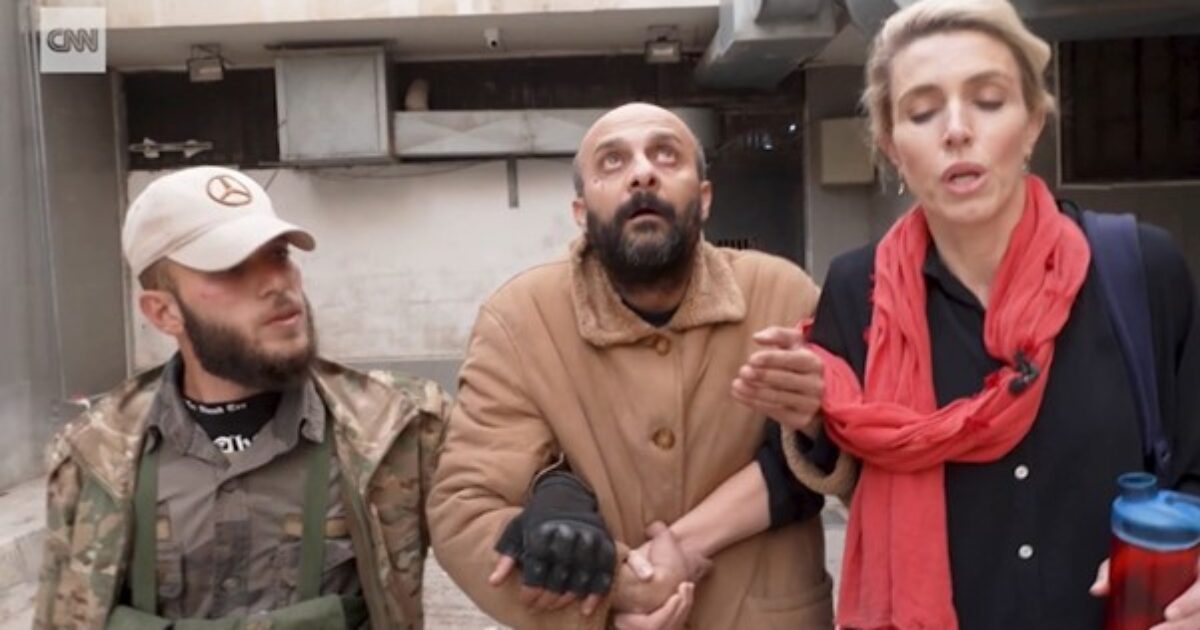Journalism Gone Awry: CNN’s Misstep in Syria
A new report reveals that a CNN war correspondent may have inadvertently helped a notorious Syrian torturer escape justice while covering the fall of the Assad regime. This troubling incident involved journalist Clarissa Ward and took place during an operation by Syrian rebels to free prisoners from a black site detention facility.
The Discovery of a Torturer
The New York Post has reported that an independent fact-checking group, Verify-Sy, identified the man who was “rescued” by Ward as Salama Mohammad Salama. This man is a first lieutenant in Syria’s Air Force intelligence and is infamous for torturing young men for trivial offenses, like not paying bribes at checkpoints. Initially, Salama misled Ward and her crew by giving a false name—Adel Ghurbal—when they found him in a dark cell at a former Air Force intelligence headquarters in Damascus.
CNN’s Response
Following the revelation about Salama’s identity, CNN acknowledged that he might have deceived Ward and her team. In their statement, they admitted, “We have subsequently been investigating his background and are aware that he may have given a false identity. We are continuing our reporting into this and the wider story.” It seems that even established news organizations can fall prey to misleading narratives during chaotic times.
Salama’s Story Raises Eyebrows
In the original CNN coverage, viewers saw Ward entering the facility with Syrian rebels searching for political prisoners. The dramatic moment when Salama was discovered had all the makings of a high-stakes rescue mission. He claimed to have been cut off from the outside world, oblivious to the fact that the Assad regime had collapsed. However, Verify-Sy raised questions about his well-being, pointing out that he looked “well-groomed and physically healthy,” showing no signs of torture or injury. His calm demeanor upon seeing sunlight also cast doubt on his narrative.
Local Insights Challenge the Narrative
Local sources later informed Verify-Sy that Salama might have only been detained for a short period—less than a month—due to a dispute over extortion payments with a superior officer. Curiously, there were no records of anyone named Adel Ghurbal being held at the Damascus Air Force base. This lack of evidence further complicates Salama’s story.
A Sinister Background Uncovered
Verify-Sy’s investigation unearthed Salama’s dark past. Known by the nickname “Abu Hamza,” he was involved in several crimes while manning security checkpoints in Homs—ranging from theft and extortion to murder for the regime. He was notorious for coercing locals into becoming informants and eliminating those who refused to pay bribes.
CNN Defends Its Reporting
CNN has firmly denied any claims of staging or orchestrating events during their report. They asserted, “No one other than the CNN team was aware of our plans to visit the prison building featured in our report that day. The events transpired as they appear in our film.” This defensive stance suggests they believe they were reporting genuine circumstances amid the chaos.
The Bigger Picture of Wartime Reporting
This shocking incident highlights just how murky wartime journalism can become, where distinguishing between victim and oppressor often blurs. As consumers of news, it is crucial to question what we see and hear—especially when it comes to reports from conflict zones where every detail counts.


Leave a Comment